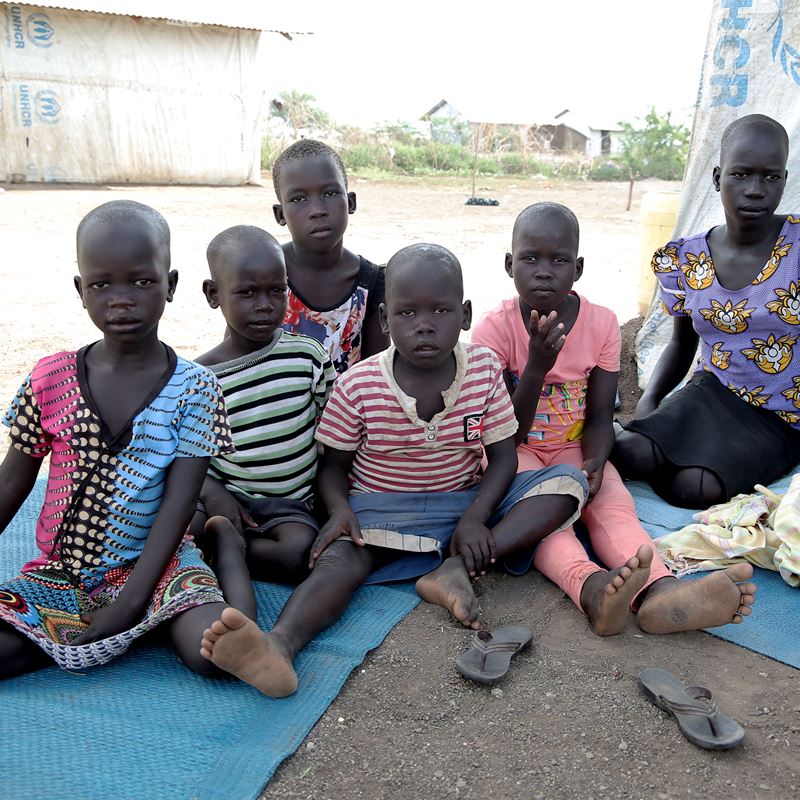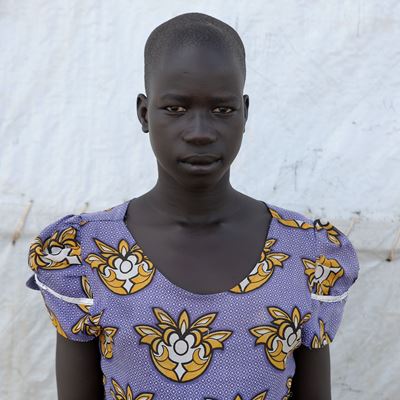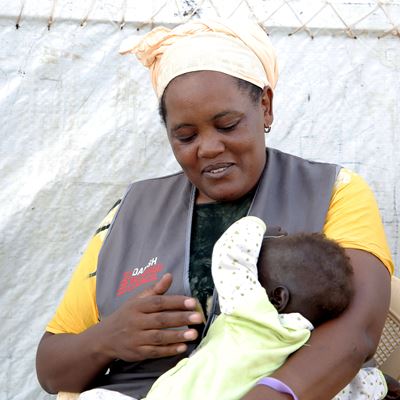Children on the move
Unaccompanied refugee children
Unaccompanied refugee minors are some of the most vulnerable people in the world and are at high risk of violence, exploitation and abuse.
Unaccompanied children are on the move all alone
It can be inhumanly difficult to live in a place where war and conflict suddenly erupt. It can mean being forced to flee to survive. And it's no less inhumane if you're one of the more than 150,000 children fleeing without their parents.
How many children are fleeing alone?
According to the UN, there are 153,000 unaccompanied refugees under the age of 18. These are children who have either fled alone or have been separated from their parents in the process.
But there are still many countries with large numbers of refugees that do not register unaccompanied minors at all. In addition, children fleeing within their own country are not registered either. Therefore, the real figure is unfortunately much higher than 153,000.
Why do children end up fleeing alone?
Some children end up alone if their parents are killed before or during their escape. Other children flee with their parents, but for one reason or another, they become separated on the often long and dangerous journey. Finally, some children are sent to flee alone by their parents. This may be because the parents are unable to escape themselves, but are desperate to get their child to safety.
How dangerous is it to be a child on the move alone?
Children on the move are among the most vulnerable people in the world.
Escaping can be very dangerous and traumatising. It only gets worse if you are a child who has no adults to protect and help you.
Studies suggest that up to three out of four children fleeing alone face abuse. This can be violence or sexual abuse. Or it may be systematic exploitation by criminal networks that offer children food and shelter if they carry out crime or other dangerous work for them.
What help do children need most?
First of all, they need protection so that they can be safe from abuse and exploitation. They also need help to get in touch with their parents or other relatives. Many are unaware of their rights and therefore need information and guidance about their options in a difficult situation. Finally, some children have been exposed to violent and traumatising experiences during their flight, which they need help to overcome.
How do we help unaccompanied minors?
We help them get to safety and give them the best possible protection. This could be through our Child Friendly Spaces in refugee camps, where we have staff trained to care for vulnerable children. We also give children access to phones and the internet. This helps them get in touch with lost parents or other family.
We give them information about their rights and counsel them about their difficult situation. Finally, we also refer them to relevant services such as psychological help, medical care, mentoring, school or informal education, and much more.


